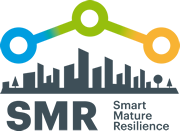The SMR project has been profiled on the European Commission website as a 'success story'.
European cities face increasing hazards and disaster risks from extreme weather, terrorist attacks and insecurity. An EU-funded research project has provided guidelines and tools for cities to learn and share experiences and become better, more resilient places to live.
Cities throughout the world are changing both socially and demographically. Climate change provokes extreme weather such as storms, floods and heatwaves, while terrorist attacks, which previously happened every few years in European cities, can now occur several times a year.
As well as the human benefits, investing in resilience can lead to significant cost savings when disasters are averted entirely or are well-handled, enabling cities to recover quickly and core operations to continue without major disruption.
Researchers and cities worked together under the EU-funded Smart Mature Resilience (SMR) project to enhance the capacity of cities to resist, absorb and recover from the threats and trends that lead to social, infrastructural, environmental and economic challenges.
‘More than half the population of the word is currently living in cities,’ says project coordinator Jose Maria Sarriegi of the University of Navarra, Spain. ‘A proactive approach to resilience can generate wide-reaching benefits across social, environmental and economic systems in cities and make them a better place to live.’
Raising awareness
Cities agree that managing resilience is necessary but lack the tools to build awareness which leads to better resilience. SMR has produced an online toolkit and provides guidance to cities and local authorities that allows them to assess and strengthen their resilience.
One of the most innovative aspects of the project was the participation of cities in co-creating these tools, which were tested and then refined according to feedback from city stakeholders.
For example, a questionnaire helped cities to assess their exposure to various risks and indicated their level of awareness of risk and where they should prioritise their efforts. A number of cities and local practitioners took part in pilot studies to test, validate and review the resilience management guidelines and tools. These formed an integrated management prototype for resilience planning that can be transferred to other cities and regions.
Those cities taking part acknowledged that their administrations tend to be fragmented, based on departments working on single issues, such as climate change, social affairs, civil protection or mobility. The SMR project provoked more interaction in efforts to build resilience strategy across departments and prompted cities to adapt and revise the tools for immediate use in their own resilience planning.
Preparing for the unknown
‘Resilience supports livelihoods, improves life quality and reduces poverty,’ says Sarriegi. ‘Planning for resilience and anticipating risks at various levels of government is essential to ensure the ongoing operation of critical infrastructure and social services, and arrive at solutions in the case of a crisis.’
As well as leading to better internal communication between municipal departments, the project’s co-creation strategy was found to improve communication between the city and private-sector stakeholders, leading to greater trust and transparency and improved intra-city relationships. Some of the project results will also be translated into European or national standards.
The SMR website offers the resilience management guidelines comprising five tools and a user manual to help city planners prepare for the unknown. The project has also helped to create a support network for Europe’s cities to help one another overcome future challenges.


